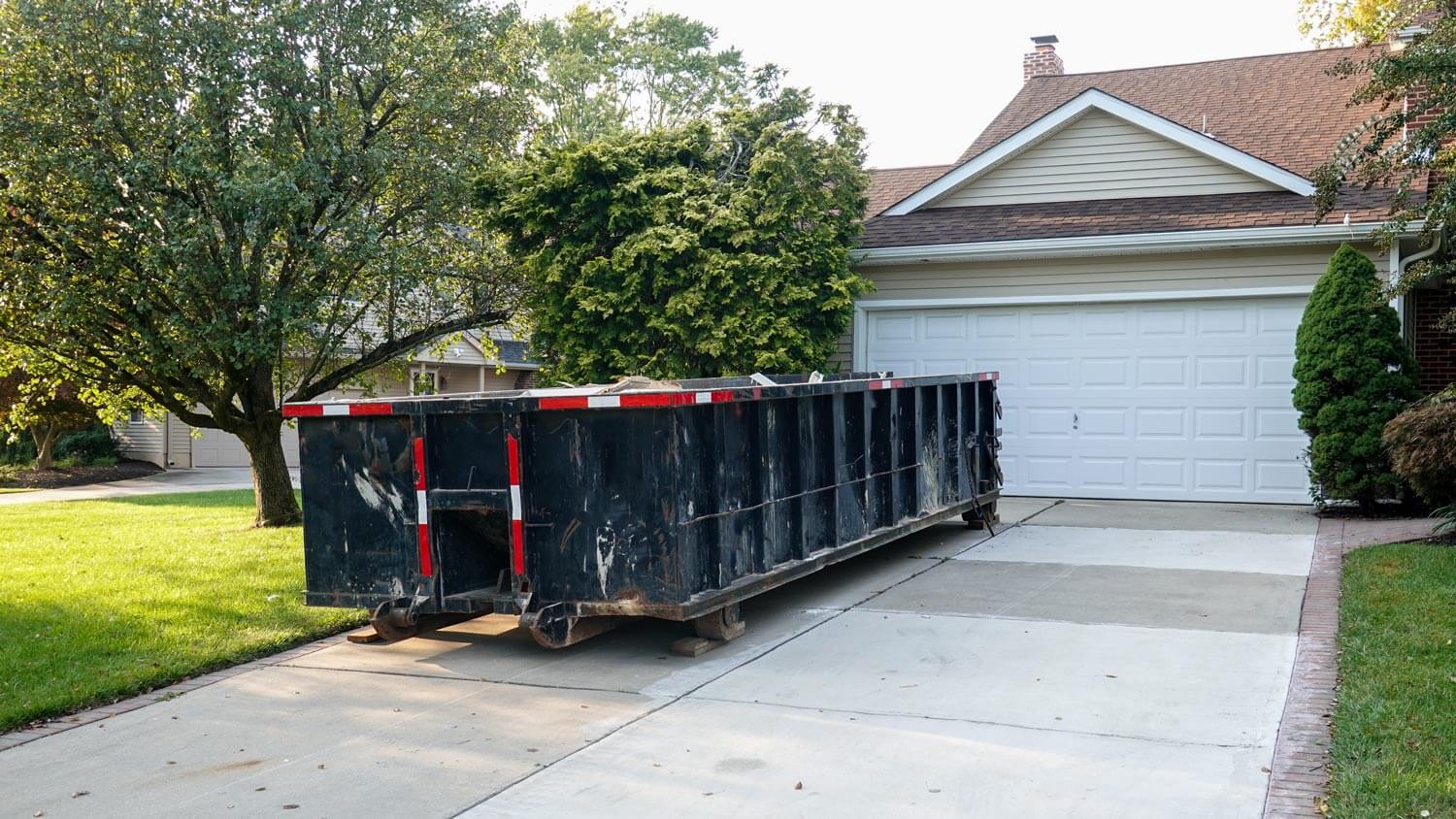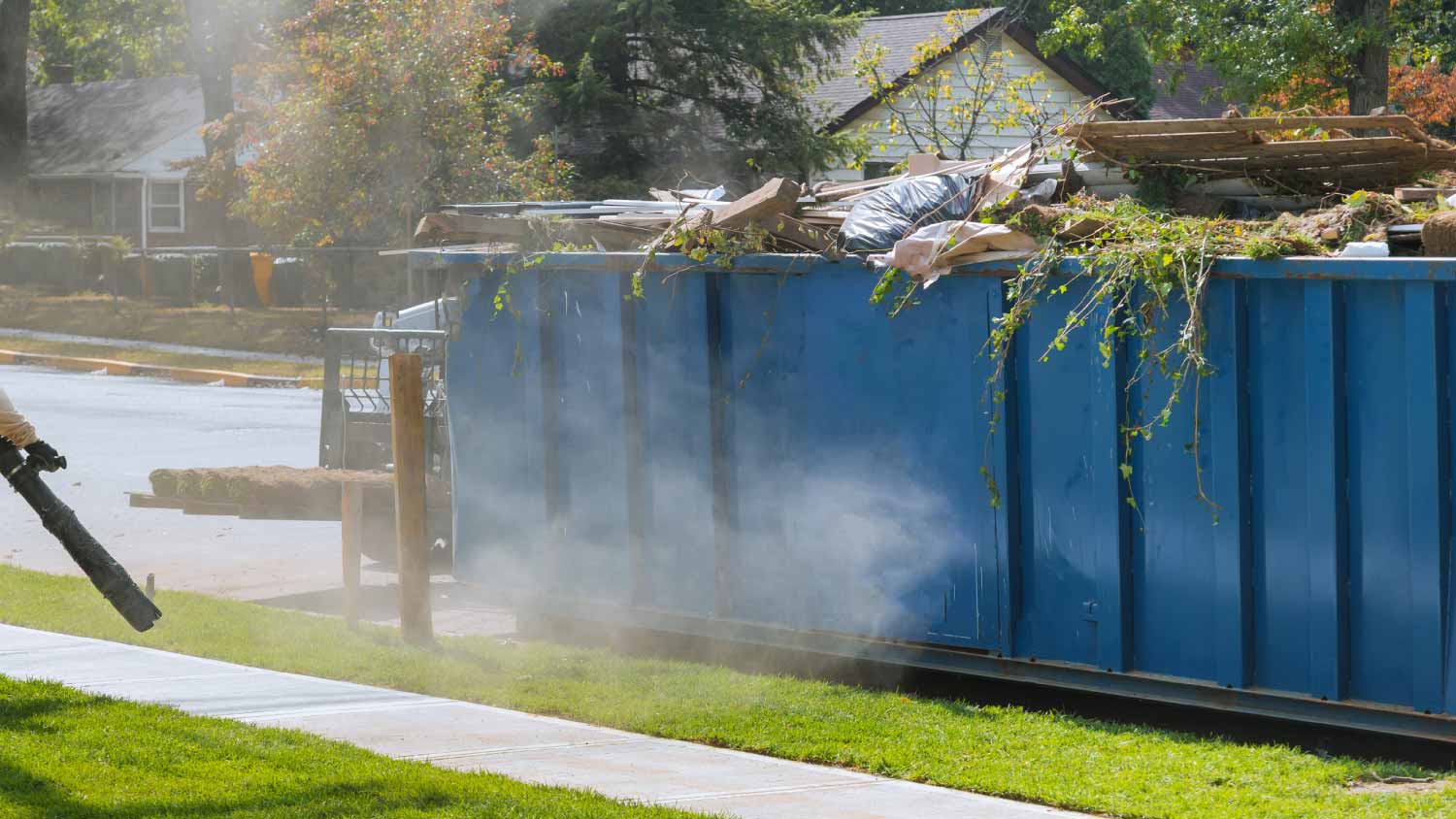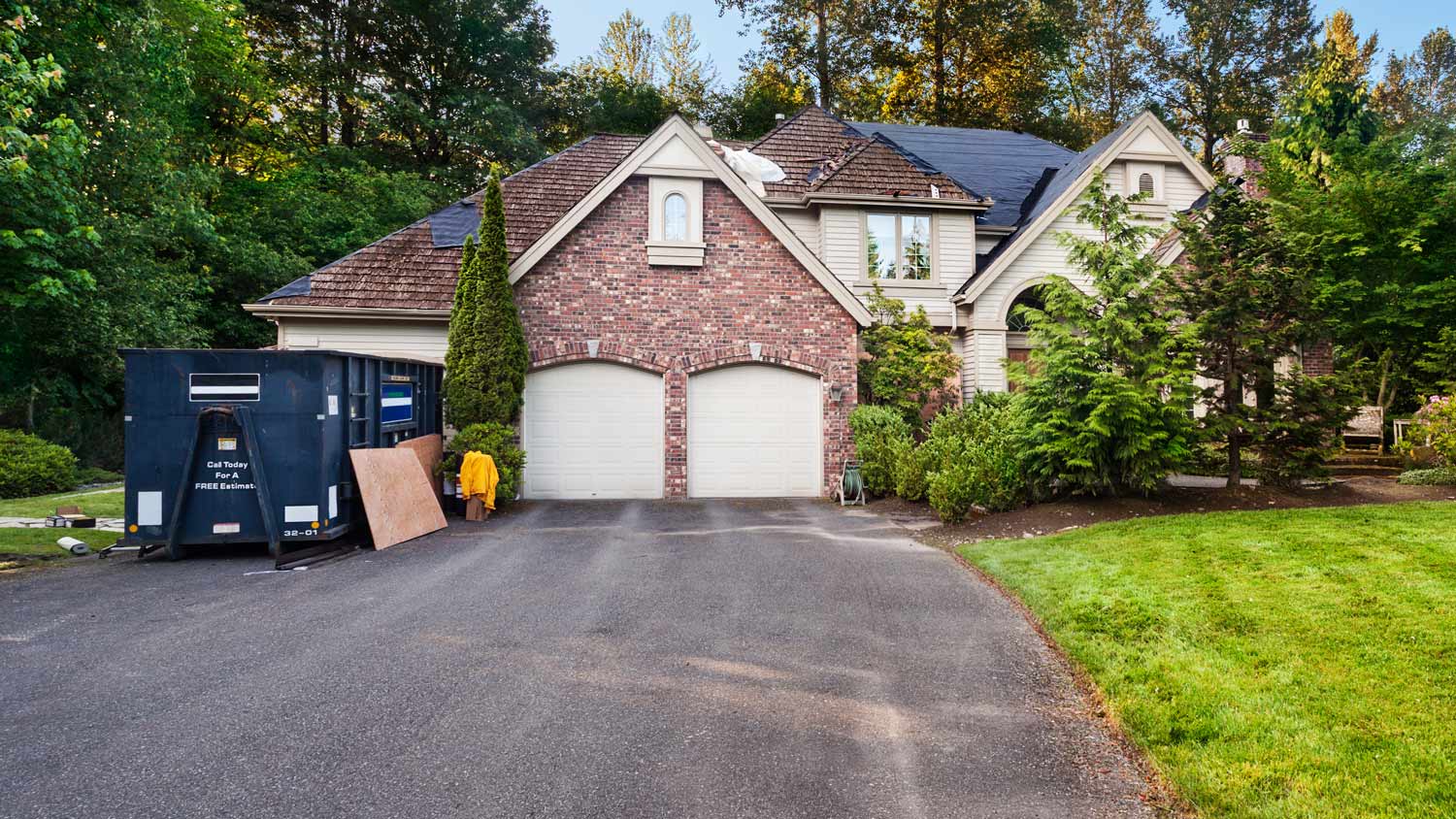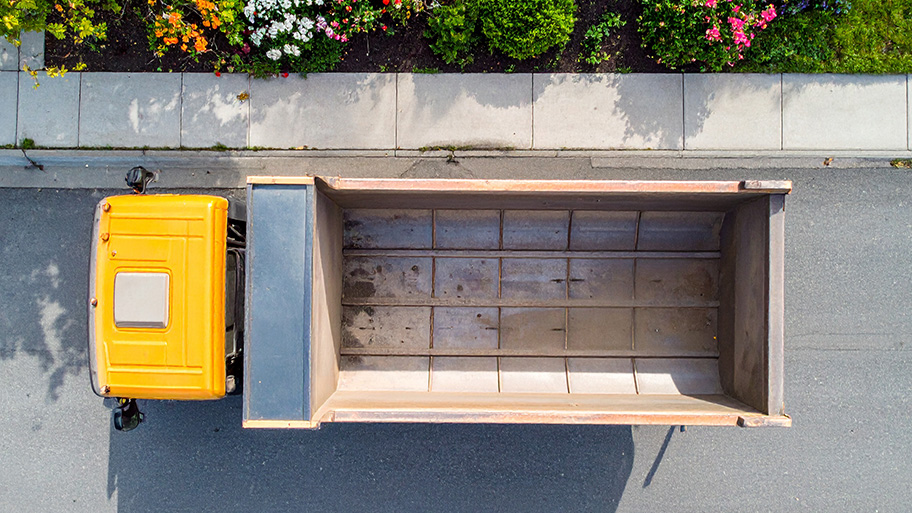
Renting a dumpster is more practical than you think. Use this guide to learn how much your rental will cost, the different dumpster types available, and tips to help you save.
Dive into all the benefits roll-off dumpsters


Roll-off dumpsters can help you dispose of significant amounts of waste during medium and large-scale projects.
You may consider a roll-off dumpster for a commercial or residential renovation, demolition, or large cleanup.
Compared to a traditional front-load dumpster, a roll-off dumpster allows for more efficient and environmentally friendly waste removal.
If you have an upcoming project that involves a great deal of waste, such as a demolition, renovation, or yard waste removal, roll-off dumpsters can be a huge help. A roll-off dumpster can help you complete your residential or commercial project with ease and convenience.
Let’s dive deeper into what a roll-off dumpster is and how it works so you can decide whether it’s right for your project.

A roll-off dumpster is a large, open-top dumpster often used for one-off or temporary jobs, such as residential and commercial construction projects or cleanouts that produce high volumes of waste and debris. Since it comes in a rectangular shape, it offers greater versatility than traditional or front-load dumpsters.
In addition, a roll-off dumpster features wheels that allow it to be towed easily around any construction site. If you have a project coming up that you know will produce a lot of waste, call a dumpster rental company near you and get a quote.
The two most common types of dumpsters are roll-off dumpsters and front-load dumpsters. Each type has its own purposes and capabilities. Roll-off dumpsters are large dumpsters often found at construction sites. Front-load dumpsters are smaller and mostly used in retail stores, restaurants, and restaurants for routine trash pickups.
Here’s a closer look at how they compare.
| How They Work | Intended to “roll off” the back of trucks to make it easier to carry bulky or excessive amounts of waste. | Intended to be picked up and emptied by front-load trucks. |
| Capacity | 10-40 cubic yards of waste | 2-8 cubic yards of waste |
| Maximum Weight | 4,000 and 12,000 pounds | 400 and 1,600 pounds |
| Typical Rental Timeframe | 7-10 days | Varies greatly |
| Price | More expensive | Cheaper |
| Common Uses | Construction, junk removal, demolition, yard waste | Property management, retail stores, restaurants, offices |

Roll-off dumpsters offer a number of noteworthy advantages.
Roll-off dumpsters are not all created equally. They come in various sizes to accommodate all types of projects and hold trash items of all shapes and sizes so you can can choose the right dumpster for your unique project and goals.
When it comes to waste disposal, roll-off dumpsters are ideal. Their open-top design makes it easy to ensure waste gets to where it needs to go quickly and efficiently. There won’t be any doors or lids in the way.
Waste disposal can be a tedious, risky job. The good news is that roll-off dumpsters make the process much simpler and safer. They let you keep debris out of the way so your worksite is clean and clear.
Roll-off dumpsters aren’t without their drawbacks, though.
While roll-off dumpsters are durable and designed to hold a lot of waste at once, they have weight limits. It’s important to adhere to these limits, or you can damage the dumpster or have to pay an excessive waste fee. Weight limits range from 4,000 to 12,000 pounds and depend on the dumpster size you choose.
Some cities and municipalities require you to obtain a permit for a dumpster, especially if you decide to keep the dumpster on the sidewalk, street, or other public place. Often, if you plan to place the dumpster on your property, a permit won’t be necessary.
In many cases, you can’t use a roll-off dumpster to get rid of hazardous materials, such as chemicals, e-waste, flammable materials, and motor oil. You should ask your dumpster rental company what items you cannot place in a dumpster in advance, or you may end up with a dumpster that you can’t use.
Renting a dumpster costs anywhere from $200 to $800 per week, with an average price of around $384. Roll-off dumpsters boast a similar price range of $300 to $800 per week. If you just need one for the day, that'll cost $40 to $100. Beyond time, the size of the dumpster is a major contributing cost factor. A two-cubic-yard dumpster will fall on the lower end of any price range, while something like an eight-cubic-yard dumpster will cost much more. As a reference, each cubic yard of a dumpster can accommodate around 200 pounds of waste.
From average costs to expert advice, get all the answers you need to get your job done.

Renting a dumpster is more practical than you think. Use this guide to learn how much your rental will cost, the different dumpster types available, and tips to help you save.

Wondering how much does it cost to rent a dump trailer? Get pricing, cost factors, and tips to help you budget for your next home project.

Dumpster rentals can range from days to months depending on your project and what you’re disposing of. Most homeowners rent a dumpster for one to two weeks.

Despite popular belief, a dumpster is not a catch-all for every type of trash. What items cannot be placed in a dumpster? We break it down here.

Need a dump truck for your project but not sure how big it should be? Use this guide on dump truck sizes and sizing to get the right size for your needs.

Learn how to rent a dumpster for your next home project or cleaning spree.